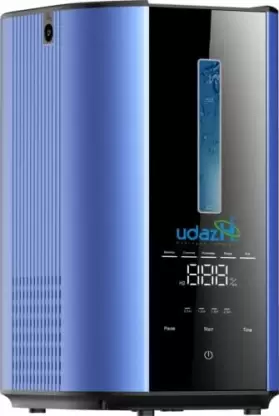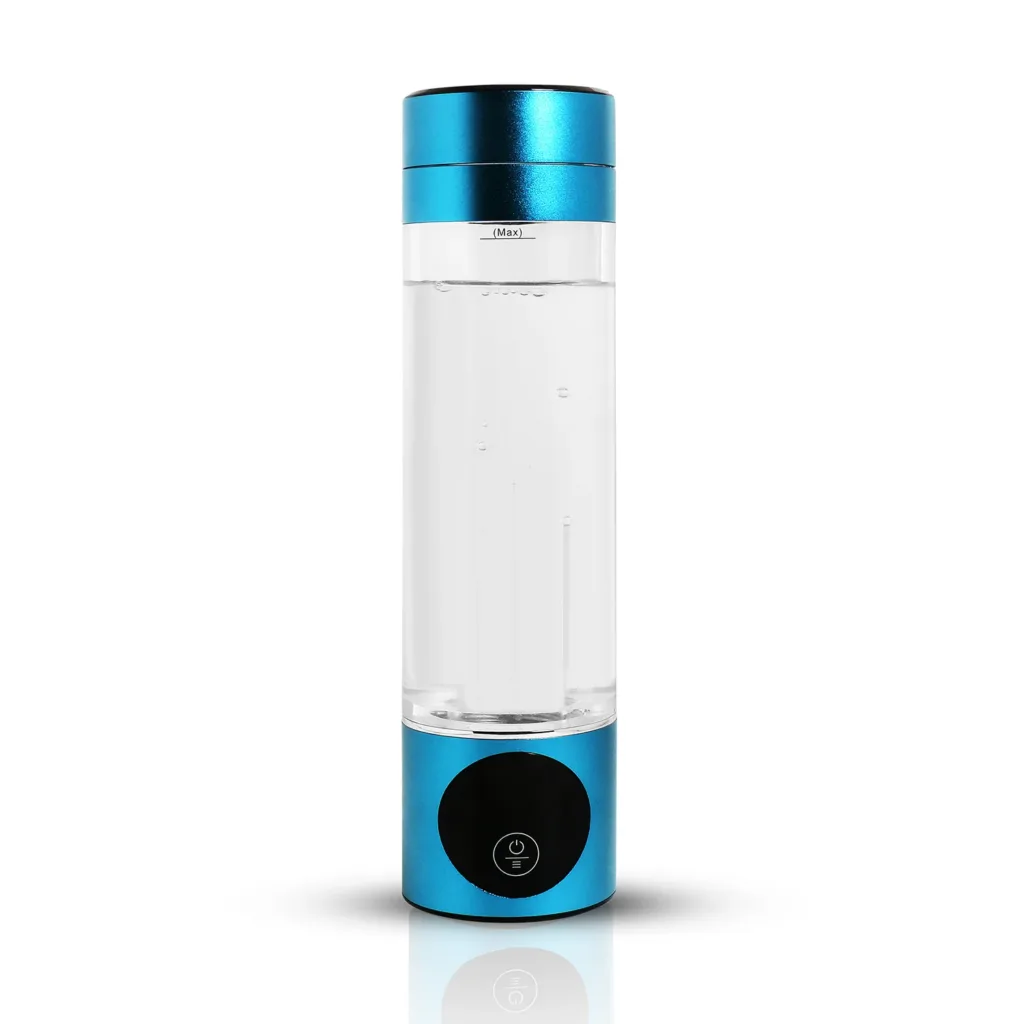A hydrogen inhaler is a medical or wellness device designed to deliver molecular hydrogen gas (H₂) directly into the body via inhalation. Molecular hydrogen is a colourless, odourless, and tasteless gas that is suggested to have antioxidant and anti-inflammatory properties. These inhalers are gaining popularity in wellness circles and experimental medicine for their potential therapeutic effects.
How a Hydrogen Inhaler Works
- Hydrogen Gas Generation:
- The device generates hydrogen gas from water using electrolysis or other methods.
- The gas is often mixed with oxygen or ambient air for safe inhalation.
- Inhalation Process:
- Users breathe the hydrogen-enriched air through a nasal cannula or a face mask.
- Sessions typically last 30–60 minutes, depending on the device and intended use.
Potential Benefits of Hydrogen Inhalers
- Reduction of Oxidative Stress:
- Molecular hydrogen may neutralize harmful free radicals in the body, potentially reducing oxidative damage linked to aging and diseases.
- Anti-inflammatory Effects:
- Hydrogen inhalation could help mitigate inflammation, offering potential benefits for conditions like arthritis, asthma, or other inflammatory disorders.
- Neuroprotective Benefits:
- Early studies suggest hydrogen gas might protect brain cells and reduce damage from conditions like strokes, Alzheimer’s disease, and Parkinson’s disease.
- Improved Recovery:
- Athletes and wellness enthusiasts use hydrogen inhalers to potentially enhance recovery and reduce muscle fatigue after intense physical activity.
- Therapeutic Applications:
- Experimental research indicates potential benefits in treating conditions such as metabolic syndrome, diabetes, and certain cardiovascular or respiratory diseases.
Scientific Evidence and Limitations
- Supportive Studies:
- Research in animals and small human trials shows promising results for oxidative stress reduction and inflammation control.
- Some studies suggest potential benefits for conditions like acute heart attack, ischemia-reperfusion injury, and lung diseases.
- Limitations:
- Most studies are preliminary or small-scale, and large-scale clinical trials are needed for conclusive evidence.
- There is no standardized protocol for the use of hydrogen inhalation in clinical settings.
How to Use a Hydrogen Inhaler
- Set Up the Device:
- Fill the device with distilled water, if required, and connect the nasal cannula or mask.
- Duration of Use:
- Sessions usually last between 30 minutes to an hour, depending on the intended health goals.
- Frequency:
- Some users inhale hydrogen daily, while others use it as needed for specific conditions or wellness routines.
- Precautions:
- Follow manufacturer instructions to avoid improper use or risks associated with high concentrations of hydrogen gas.
Safety and Risks
- Generally Safe:
- Molecular hydrogen is non-toxic and safe for human use at appropriate concentrations (typically below 4% in air to avoid flammability).
- Consultation Recommended:
- Those with medical conditions or on medications should consult a healthcare professional before using a hydrogen inhaler.
Conclusion
Hydrogen inhalers represent a promising area of wellness and medical research, offering potential benefits for reducing oxidative stress, inflammation, and recovery enhancement. While the technology shows promise, more robust clinical evidence is needed to validate many of its claims. It is best used as a complementary therapy under proper guidance rather than a primary treatment for medical conditions.


















